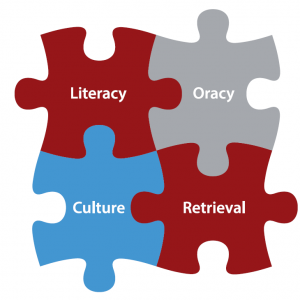Curriculum Overview
Vision:
All OMA students, irrespective of their backgrounds, will be exceptional learners, so they are equipped with the necessary knowledge, skills, qualifications and mindset to contribute positively in society.
Mission:
At OMA, we believe that students will aspire to excellence through literacy, with a specific focus on oracy at Key Stage 3. Students will learn to become masters of retrieval and experience a curriculum which develops students’ cultural capital.
At Ormiston Maritime Academy we offer a curriculum that fits with our values of ‘ASPIRE to excellence’.

Ormiston Maritime is situated in North East Lincolnshire. The specific barriers for students at Maritime are:
- Students on entry are below expected progress in reading and maths on entry from KS2 (ASP). There is also below average progress in Literacy and Numeracy in the adult population (evidence JSNA NEL). Progress of SEN students at end of Key Stage 2 is significantly below non-SEN students (evidence JSNA NEL).
- Students are in the highest quintile of deprivation and highest quintile for SEN (IDSR).
- Low proportion of adults with NVQ 4 equivalent and above; high proportion of adults with no qualifications (evidence JSNA NEL).
- LA has 5th highest % of NEETS in 16-to 17 year olds in all LA of the Yorkshire and Humber (15 LA) (evidence JSNA NEL).
The curriculum is therefore designed to overcome these barriers.
Each Curriculum Team will have their own vision for their subject which will explain what is taught, how it has ambition, how it fulfils the National Curriculum and the order the curriculum is sequenced. We want our students to understand how to be an expert in each subject such as a ‘scientist, mathematician, historian’ to name but a few. The planning of the subject curriculum has the four core pillars at its heart – literacy, oracy, retrieval and the experience of cultural capital.
We offer a curriculum that is broad and balanced and promotes spiritual, moral, social, cultural and physical development of students with a view in preparing our young people for their future careers. With this in mind, we do focus a significant proportion of our curriculum time on English and mathematics to ensure students have the core numeracy and literacy skills to help access other curriculum areas.
Key Stage 3 is a three-year programme of study. This ensures the curriculum is broad and does not narrow too quickly. It is important that all students experience a variety of subjects.
All students follow the National Curriculum by studying English, Mathematics, Science, Art, Geography, History, ICT, French or Spanish, Performing Arts, Physical Education, Religious Education and Design Technology. The Key Stage 3 curriculum develops a strong foundation for these subject areas, strengthening skills and building knowledge required for further study, whilst striving to develop a passion and enthusiasm for learning. The curriculum and schemes of learning are continuously audited to ensure they are as least as ambitious as the National Curriculum requires. There is also dedicated curriculum time to careers and PSHE (Learning for Life).
Key Stage 4 begins when students are in Year 10 to enable more students to develop the MFL skills in Years 7-9 to be able to access the more academic Ebacc suite of subjects.
Our options pathways process is based on prior attainment, internal assessments, the interests, the abilities and aptitude of the students and they are supported at an individual level to help them choose the subjects that are right for them. All students can access all of the subjects on offer. We offer a wide range of GCSE and Vocational qualifications. All students study English, Mathematics and Science. In addition, all students take part in timetabled Physical Education. There is also dedicated curriculum time to careers, PSHE (Learning for Life) and Religious Education.
Curriculum Pillars

Retrieval
At OMA, we believe retrieval is essential for students to be successful. Students being able to know more and remember more will build on the knowledge and skills for them to be successful in society. As students this will then lead to the best achievement in their qualifications and being able to compete for the best careers in the world of work.
Literacy
At OMA, we believe literacy is a key driver to success and plays a vital role in transforming students into socially engaged citizens. Students need to be able to understand what they are reading and to be able to write fluently with a high level of language. This will then make our students well-equipped to be ready for the world of work and communicate effectively.
Oracy
At OMA we believe students should be able to be articulate and express their feelings and meanings eloquently, confidently and sensitively. The benefits of oracy skills go far beyond academic achievement and employability – they boost a whole range of social, emotional and interpersonal skills, including self-confidence, self-awareness, resilience and empathy.
Cultural capital
At OMA, we believe students should experience learning that isn’t just formal qualifications. It comes through all aspects of the curriculum – exposing students to a large variety of subject areas; promoting character-building qualities through careers and enrichment and about the wider employable skills that are required. Students should participate a wide range of experiences to prepare them for future success.
The curriculum is supported by a careers programme. This is to inspire our students to move onto qualifications that are at the correct next level and to not be NEET. More information can be found HERE.